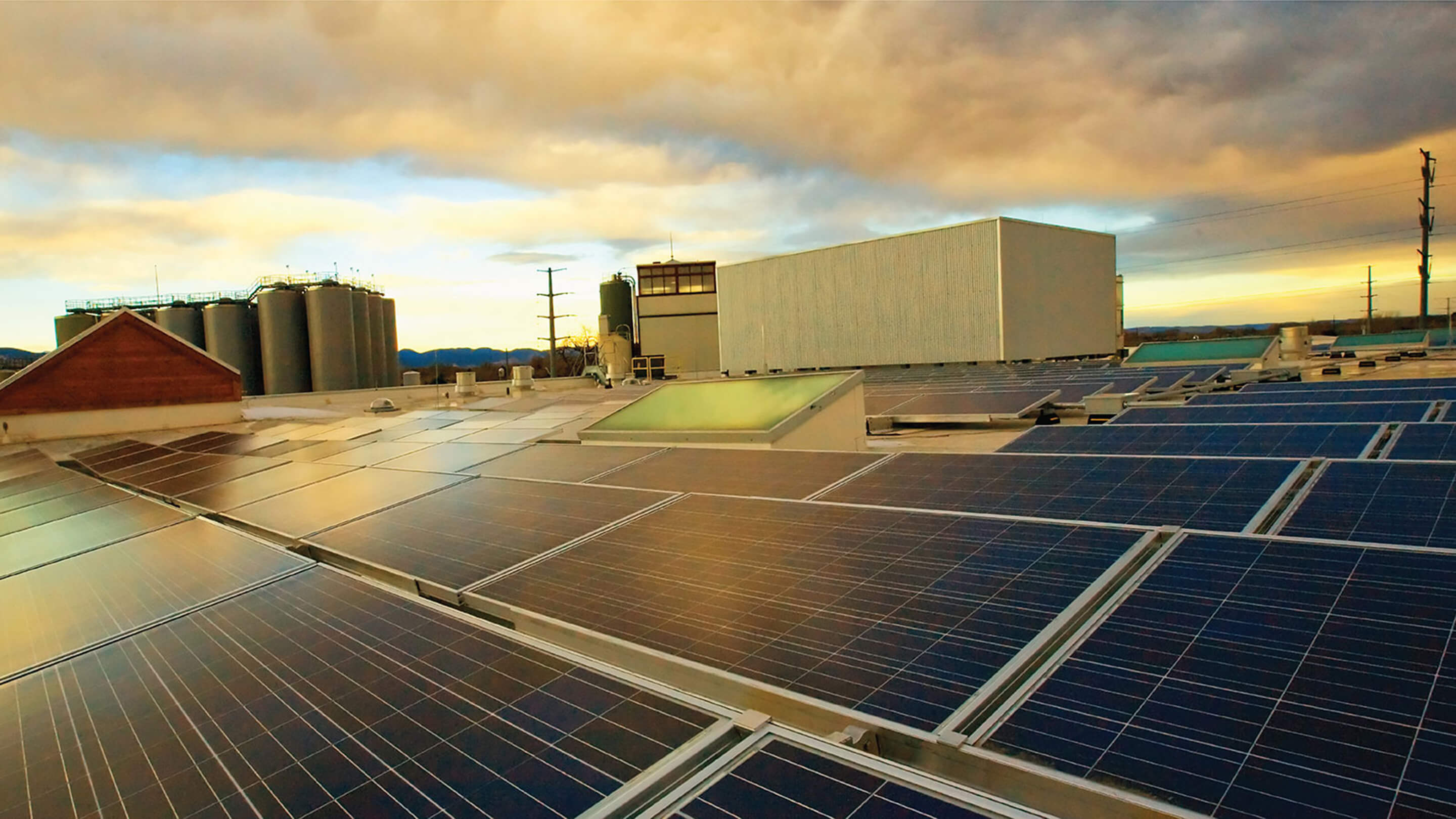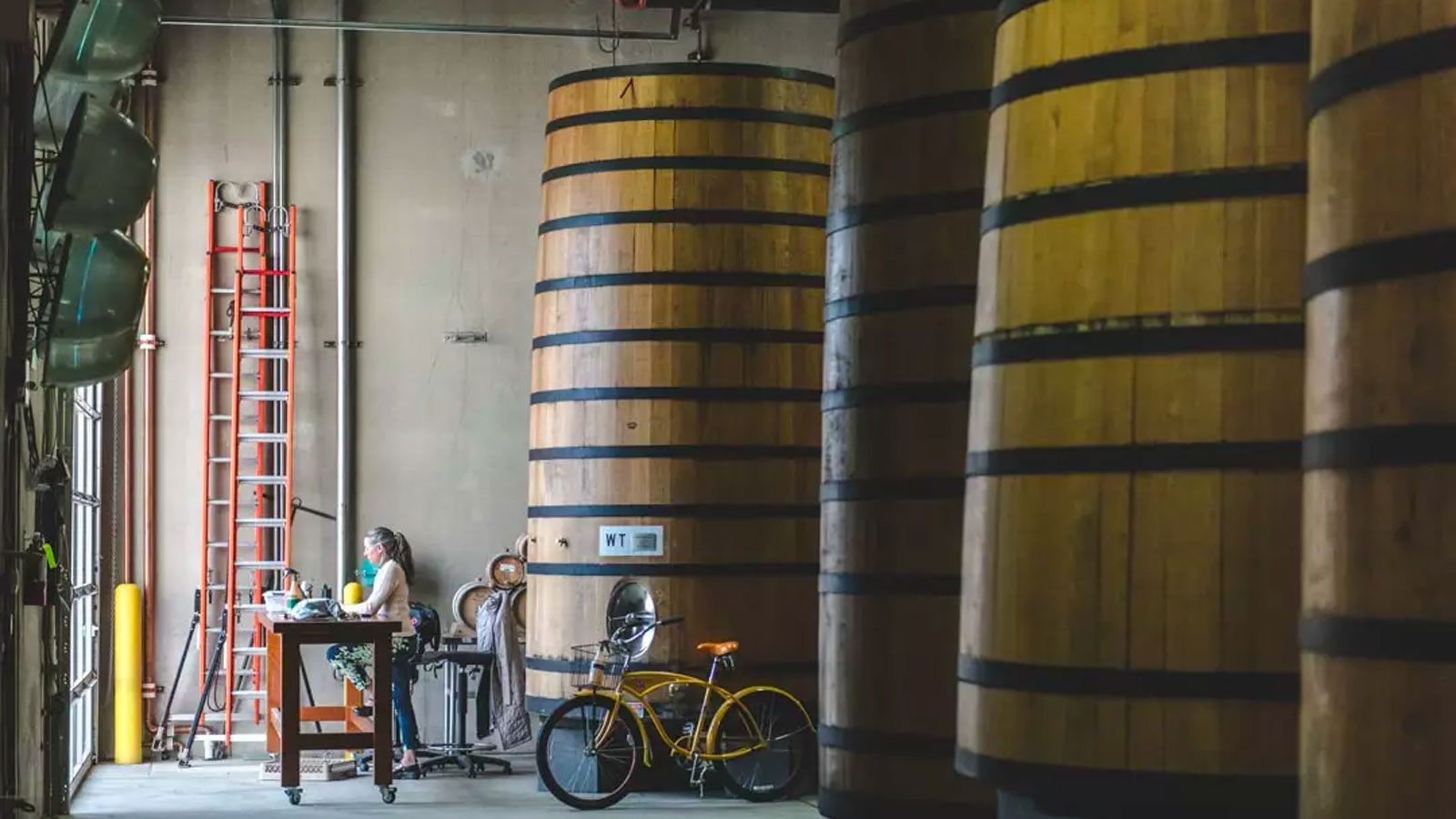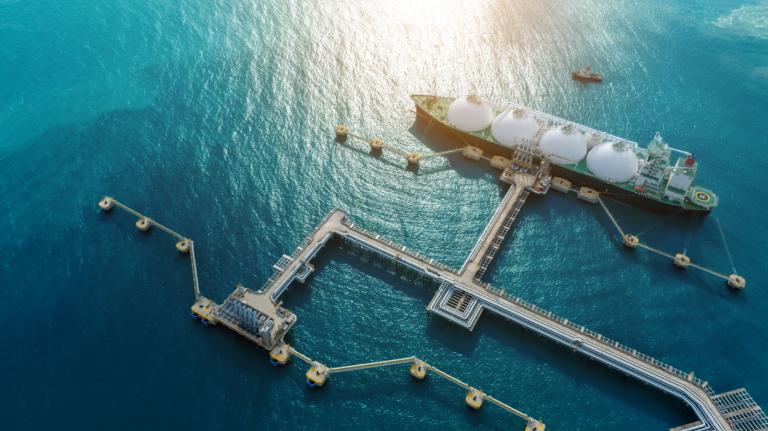Farming in the age of climate change is an uncertain proposition, as the hop growers in Washington’s Yakima Valley can attest. As weather patterns alter, the farmers who grow 40% of the world’s hop supply are battling one crisis after another. Violent windstorms toppled their hop trellises just before the 2020 harvest. (A similar gale drove the December 2021 fire that ripped through the outskirts of Boulder, Colorado.) An unprecedented heat dome scorched their crop during the summer of 2021. And wildfires during the autumn of 2020 ruined still more hops.
Over the past two years, these issues have played out across the beer industry supply chain. “The Colorado wildfires made the water unusable for our brewery,” says Katie Wallace, New Belgium Brewing’s director of social and environmental impact. “We also had the worst barley crop in farmers’ lifetimes due to extreme heat, and limited hop supplies because of the smoke taint. There were major supply chain disruptions during extreme weather events, like the deep freeze in February, that shut down deliveries of supplies critical to brewing and stalled production.” New Belgium’s R&D specialist Dave Glor echoes Wallace: “From fruit juices to barley, everything was impacted.”
But even as climate change batters their business, New Belgium and others in the beer industry are leading the way in adapting, offering a case study on environmental action that has real, measurable impact.
A case study in concrete action
Based in Fort Collins, Colorado, New Belgium Brewing wanted consumers to experience the flavor of climate change – so their flagship brand, Fat Tire, released “Torched Earth,” a limited-release ale incorporating smoke-tainted, drought-parched ingredients. It tasted terrible. “Being able to communicate the reality of what climate change would do to beer is really important,” says New Belgium’s Wallace. “Because if we don’t take action, it’s going to get worse.”
Fat Tire also made waves throughout the beer world in 2020, when they announced that their popular amber ale was certified carbon neutral – the first beer in the United States to achieve that status. But these initiatives are just the tips of the (rapidly melting) iceberg. The brewery is doing deep work at all levels to become as sustainable as possible, undertaking a broad portfolio of actions that consumers can see and measure.

The effort started with a comprehensive carbon accounting process – a critical analysis of how much is emitted by the business, and where. From there, Fat Tire began buying high-quality carbon offsets for the emissions outside of their direct control, like transportation. Fat Tire’s efforts will pave the way for similar programs across all New Belgium beers, putting the business on the path to complete carbon neutrality by 2030.
New Belgium Brewing also played a crucial role in lobbying the city council of Fort Collins to transition to 100% renewable electricity by 2030. Wallace says other companies shouldn’t hesitate to do the same. “Sometimes companies feel like they need to have their own carbon accounting in place first, but this is the low hanging fruit,” she says. “Companies should go talk to whoever leads their local utility about moving to renewables. It’s an action they can take now! Companies don’t have to have perfect internal sustainability before asking for that.”
Wallace also highlights the role of larger companies in the fight against climate change: “70% of our emissions come from 100 companies,” she says. “It’s concerning. We can break our backs over here as a medium-size business, but we need the bigger companies to do the work too.” To that end, New Belgium and Fat Tire launched a “Last Call for Climate” initiative, highlighting the sustainability efforts of Fortune 500 companies, along with Twitter links for consumers to call them out or praise them based on their sustainability plans.
New Belgium’s other actions include developing beverage company sustainability standards and launching a carbon-neutral brewery toolkit for their competitors to download and use — free of charge.
For 2022 and beyond, the company has bold goals. “We just rolled out a supplier engagement program, partnering with our suppliers to understand our climate goals,” says Wallace. “Our success will rely on them heavily.” Other items on the agenda include implementing recommendations from the energy engineer New Belgium hired to review their 2030 net-zero plan, continuing to work with their internal carbon-neutral task force, and engaging with New Belgium’s banking and insurance providers.” They have so much influence in what gets funded in the world,” Wallace says.
A ripple effect
New Belgium’s work has also paved the way for other beer companies to take action. Chase O’Malley, from Sunday Beer Co., says, “When New Belgium announced in 2020 that they had made one of their beers carbon neutral, it was the first I had heard of another brewery doing it on that scale. That was really inspiring to us.” Sunday Beer Co. quickly followed suit, making their signature lager carbon neutral, and pooling with other small businesses to purchase offsets through the non-profit Climate Neutral. Future beers made by the company will also be carbon neutral. The brewery has now switched to fully recyclable packaging, and is reassessing the supply chain for their non-beverage merchandise. “None of us believe that buying offsets is how we’re going to solve the climate crisis,” says O’Malley. “Paying someone else not to emit is not going to solve the problem. But putting the climate first in our business decisions is the first step.”
New Belgium has also inspired Colorado-based Upslope Brewing Company. “We had been on the hunt for a free, comprehensive accounting tool for a while,” says Elizabeth Waters, who oversees sustainability efforts at Upslope. “We were thrilled when New Belgium released their carbon toolkit. It’s user-friendly and specific to the beer industry.” Upslope plans to reduce emissions by 50% by 2030, and is on track to achieve zero-waste by 2025.
Other major players in the beer world are following suit: Wallace says other large craft breweries using New Belgium’s toolkit are on track to announce their carbon-neutral plans soon. And the Yakima Valley hop farmers are doing their part, too – from implementing carbon sequestration practices and more efficient energy and water use to commissioning a first-of-its-kind lifecycle study of hops carbon footprint.
Consumers care
The response from consumers has proven that concrete climate action leads to sales. Kendall Jones, a journalist and the founder of the Washington Beer Blog, sees the trend growing. “A lot of craft beer drinkers are putting sustainability at the forefront,” he says. “One of the reasons the audience for craft beer is growing is that people who make decisions based on sustainability are seeing it as the more sustainable choice.”
New Belgium’s Katie Wallace sees this trend borne out in the data – consumer perceptions of Fat Tire have ticked sharply upwards since the ale became carbon neutral, and other data bears out the trend. “We see a lot of support from our customers around our sustainability work,” she says. “According to our Nielsen data, 84% of customers believe it’s important for a beer to be carbon neutral.”
Other brewers are seeing the same positive response. “As we’ve grown our sustainability program, an increasing number of our stakeholders have been reaching out with questions and interest in partnering,” says Elizabeth Waters from Upslope Brewing Company. O’Malley from Sunday Beer Co. also sees the impact. “We’ve received incredibly positive feedback,” they said.
Wallace says collective action is the next step in the journey. “There have been many times when we have collectively invested in our shared wellbeing,” she says. “Many of the systems we depend on today came from protecting our shared prosperity during a time of threat, like the Great Depression or World War II. Right now, the biggest threat is climate change. It’s time to come together and make sure we’re addressing that.”
As the consumer response shows, taking concrete steps in the battle against climate change can also be good business practice. This bolsters the leaders in the beer industry who are taking a stance that other sectors would do well to emulate. As O’Malley of Sunday Beer Co. puts it: “The crisis is here. We can’t just take incremental steps — we need to leap forward as an industry. Our product is so tied to agriculture and the realities of our environment. Why shouldn’t the beer industry lead the way on these bigger goals and issues?”
Fat Tire Amber Ale was first introduced by New Belgium Brewing in 1991 and has since established itself as one of America’s most popular beers. Brewed by a certified B Corp, and member of 1% For The Planet, Fat Tire has remained fervently committed to social and environmental responsibility for over 30 years and is now America’s first certified carbon neutral beer.



